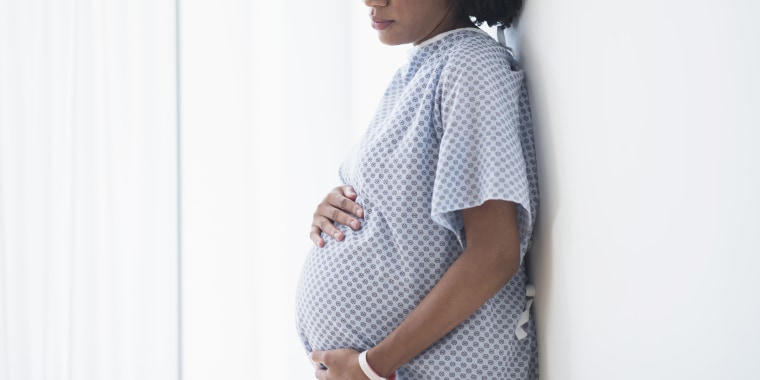Having COVID-19 while pregnant may be linked to adverse birth outcomes, including preterm deliveries and even stillbirths, according to new research from the Centers for Disease Control and Prevention.
In one study released on Wednesday, researchers looked at nearly 600 pregnant women with COVID-19 who were hospitalized between March 1 and Aug. 22. Among the live births that occurred during the study, 12.6% were preterm deliveries (before 37 weeks pregnant) — that's higher than the national preterm delivery rate, which was 10% in 2018, according to the CDC. Ten of the women experienced pregnancy loss, including miscarriage and stillbirth.
Researchers noted that only about half of the women in the study were symptomatic. Those who were symptomatic experienced higher rates of preterm delivery (23.1%) than those who were asymptomatic (8%). Two symptomatic pregnant women died.
Dr. Diana Bianchi, director of the National Institute of Child Health and Human Development, which is conducting its own research on COVID-19 and pregnancy, said the new CDC reports are concerning — but that researchers still have a lot to learn about the long-term effects of the virus.
"It's a little bit hard to know what's going on with the stillbirths and the preterm deliveries," she told TODAY. "We know that with other infections like SARS and MERS, there was a higher incidence of stillbirths and preterm deliveries, so it's something we very much need to be concerned about."
She added that stillbirth rates have risen globally during the pandemic; experts believe that high-risk pregnancies may be going undetected because people aren't getting adequate care.
In another study, also released on Wednesday, researchers looked at 105 hospitalized pregnant women with the coronavirus between March 1 and May 30 and found that rates of diabetes and obesity were higher among those women who had been hospitalized for reasons relating to COVID-19, as opposed to those who had been hospitalized for unrelated reasons. Of those who were hospitalized for COVID-19, 30% required intensive care, 14% required a ventilator and one woman died from the virus.
The findings are in line with previous research. In June, data from the CDC suggested that pregnant women with COVID-19 may experience more severe symptoms than nonpregnant people and are more likely to require hospitalization and ventilation.
The second CDC study also pointed to a greater risk of adverse birth outcomes. Among the 93 women who delivered, 15% had preterm deliveries and 3% had stillbirths.
Stillbirth generally affects about 1 in 160 births, according to the CDC.
Doctors are still trying to understand exactly how having COVID-19 during pregnancy may affect both mom and baby. One small study released in May found that pregnant women with the coronavirus are more likely to develop injured blood vessels in their placentas. However, all of the full-term babies in the study tested negative for COVID-19 and were doing well when they left the hospital.
The American College of Obstetricians and Gynecologists (ACOG) said it is still reviewing the new CDC data, but that it seems to reaffirm earlier research suggesting pregnant women may be at an increased risk for severe illness due to COVID-19.
"Right now, pregnant women and their families should know that pregnant patients do not appear to be at increased risk of death associated with COVID-19 compared with nonpregnant patients in the same age group," Dr. Christopher Zahn, ACOG's vice president of Practice Activities, said in a statement shared with TODAY. "It is critical that pregnant women and their families continue to take precautions to prevent infection — including hand washing, socially distancing, and wearing a mask — particularly those with increased risk of exposure due to occupation or underlying conditions, and get tested immediately if infection is suspected.”
Bianchi said Black women, who already face high maternal mortality rates, should be especially careful.
"I would be concerned about women of color with asthma or hypertension," she said. "If they had a positive COVID-19 test, they should be especially vigilant and be in frequent contact with their physicians. And if they are unwell or having difficulty breathing, they need to get care in a timely way."


